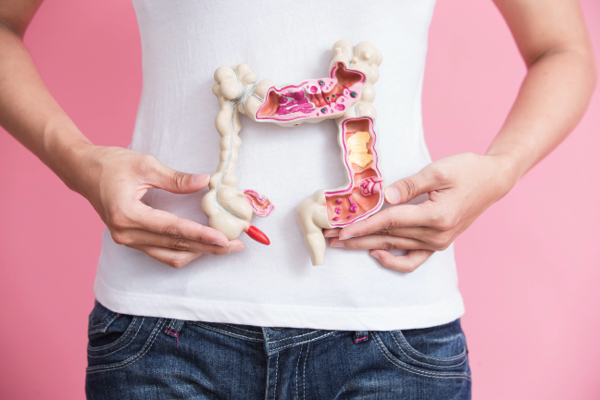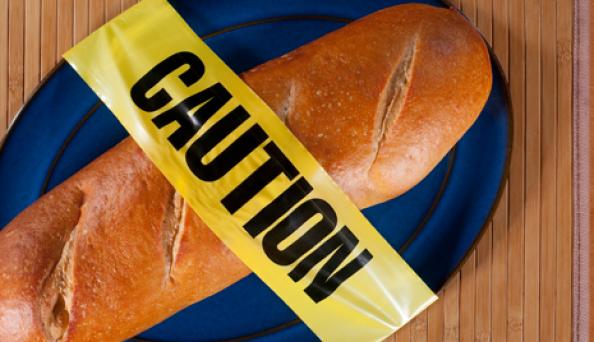 Parler
Parler Gab
Gab
Why are colorectal cancer cases rising among young people?
The increase is particularly noticeable in cases of rectal cancer and cancers located on the left or distal side of the colon. Dr. Caitlin Murphy, an associate professor and cancer researcher at the University of Texas Health Science Center at Houston, suggested that this pattern may hold vital clues to understanding the uptrend. One of the concerning characteristics of colorectal cancer in younger people is its tendency to be more aggressive and to not be detected until its later stages This is particularly troubling since individuals below 50 are generally not included in the recommended age group for routine cancer screenings, which have been successful in reducing cancer rates among those over 50. To address this, in 2021, the U.S. Preventive Services Task Force lowered the recommended screening age from 50 to 45. Individuals born around 1990 are now facing twice the risk of colon cancer and four times the risk of rectal cancer compared to those born around the 1950s. (Related: Colon cancer on the rise in young adults: GMOs, vaccines and synthetic folic acid all to blame.) Genetic factors are often considered in cases of early-onset cancer, and in fact, some molecular studies have identified unique mutations in tumors from young patients. The presence of colorectal cancer or precancerous polyps in a close relative also raises one's risk. However, genetic predispositions alone cannot fully explain the rise in early-onset cases. Lifestyle and dietary habits are under scrutiny too, with increases in the consumption of red meat, ultra-processed foods, sugary beverages and alcohol. Between 1992 and 1998, cigarette smoking also increased before declining again–alongside declines in physical activity and a spike in obesity rates since the 1980s. Researchers are exploring other potential causes, such as changes in gut bacteria balance and the impact of various medications on the gut microbiome. Additionally, environmental toxins are being investigated for their possible roles in increasing cancer risk. Geographic and demographic patterns in cancer rates suggest that environmental exposures could be contributing to the rise in cases. For example, the shift in rates among different racial groups and the concentration of cases in specific regions hint at environmental factors related to industry and agriculture. Emerging contaminants, like per- and polyfluoroalkyl substances (PFAS), known for their persistence in the environment, are also under scrutiny for their possible link to cancer. Murphy emphasized that there's unlikely to be a single cause for the increase in early-onset colorectal cancer. Instead, a combination of genetic, lifestyle and environmental factors is likely at play, painting a complex picture of the disease's etiology.How to identify and reduce colorectal cancer risk
The awareness organization the Colon Cancer Coalition has been offering guidance on how to discuss the risk of colon and rectal cancer with family members. The most important step is making sure to know the family's health history, especially the history of colorectal cancer. Recognizing the symptoms of colorectal cancer is also vital. Symptoms can include unexplained abdominal pain, changes in bowel habits and rectal bleeding. Experiencing any of these warrants a conversation with a healthcare provider to explore the need for testing. The next step to take after this is to get screened for colorectal cancer, with the best screening method being colonoscopies, which stand out for their dual role in the detection and removal of tumors. Today, patients have a variety of preparation options that are more comfortable than those of the past. Home testing kits now offer a non-invasive screening option, successfully detecting colorectal cancers in 92 percent of cases through stool DNA analysis. However, these tests are less effective at identifying precancerous polyps and do not allow for tissue removal. Find out more about why cancer is becoming more common among certain demographics at CancerCauses.news. Watch the following discussing one of the possible reasons why cancer is increasing. This video is from the channel The Prisoner on Brighteon.com.More related stories:
Ivermectin can "kill cancer cells" and boost immune response, suggest health experts. Studies prove vitamin D supplementation can prevent COVID-19 and protect against cancer, liver disease and cardiovascular disease. Research suggests nutrient from meat and dairy can help KILL cancer cells. Sources include: 100PercentFedUp.com Cancer.org NYTimes.com Brighteon.comVaccines have destroyed society, unleashing a wave of irreparable damage to public health
By Ethan Huff // Share
Why GLUTEN is so much WORSE for your health than you might have thought (op-ed)
By S.D. Wells // Share
The mighty BLUEBERRY, a superfruit with anticancer properties
By Olivia Cook // Share
Courts set precedent for mass FORCED VACCINATION of all children
By Cassie B. // Share
Governments continue to obscure COVID-19 vaccine data amid rising concerns over excess deaths
By patricklewis // Share
Tech giant Microsoft backs EXTINCTION with its support of carbon capture programs
By ramontomeydw // Share
Germany to resume arms exports to Israel despite repeated ceasefire violations
By isabelle // Share










